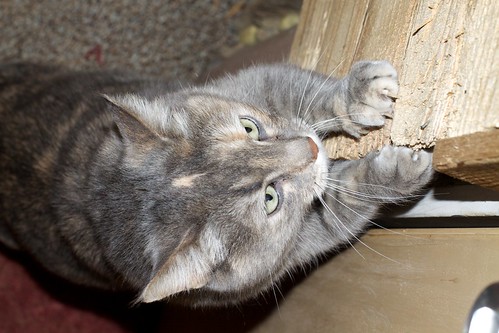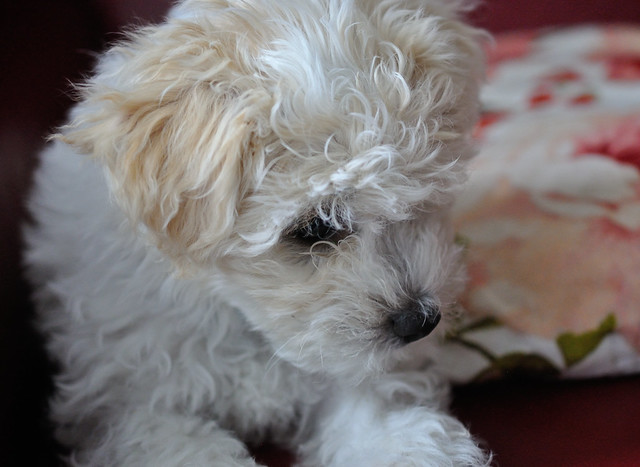Words for three and related things in Celtic languages:

| Proto-Celtic | *trīs = three *tritiyos = third (in a sequence) *trisano- = third (fraction) |
|---|---|
| Celtiberian | Tiriś = three |
| Gaulish | treis = three (m) tiđres = three (f) |
| Lusitanian | *trīs = three |
| Old Irish (Goídelc) | tri, trí [tʲrʲiː] = three tress = third (in a sequence) trían = third (fraction) tríar = three (people) tréide = three things trédenus = three days tréimse = three months |
| Middle Irish (Gaoidhealg) | trí = three tress = third (in a sequence), one of three trímad = third (in a sequence) trían = third (fraction) tríar = three persons, trio, three things tréimse = three months, a quarter (of a year) |
| Irish (Gaeilge) | trí [tʲɾʲiː] = three tríú [tʲɾʲiːuː] = third (in a sequence), third part triúr [tʲɾʲuːɾˠ] = three (people) triantán = triangle triantánacht = trigonometry triantánaigh = to triangulate tríoiseach = three-dimensional |
| Scottish Gaelic (Gàidhlig) | trì [triː] = three treas [tres] (3ˢ) third (3ʳᵈ) treasamh (3ᵐʰ) third (3ʳᵈ) triùir [truːrʲ] = three (people) trì-fillte = triple, threefold, three-ply trian [triən] = third (part) triantan [triəndan] = triangle iantanachd [iantanachd] = trigonometry |
| Manx (Gaelg) | tree [t̪riː] = three troor = three (people), threesome, triad, Trinity, trio, trinity treeoo, trass = third trooane, troorane = triangle |
| Proto-Brythonic | *tri [triː] = three (m) *teir = three (f) *trɨdɨð [trɨˈdɨːð] = third (m) *trɨdeð = third (f) |
| Old Welsh | *tri [triː] = three (m) *teir = three (f) tritid = third (in a sequence) trean = third (fraction) |
| Middle Welsh (Kymraec) | tri = three (m) teir, tair = three (f) trited, trydet, trydyd = third teir coglaỼc, trichonglaỼc, trichongloc = triangular, three-cornered trydeblyc, tridyblic = three times, threefold, triple |
| Welsh (Cymraeg) | tri [triː] = three (m), tair [tai̯r] = three (f) triawd = trio, threesome, triology, triple trichorn = three-horned, three-cornered, tricorn hat tric(h)onglog = triangular, three-cornered tri deg = thirty tridyblyg = three times, threefold, triple, triplicate trionglyn = triangle trydydd (3ydd) = third (m) trydedd (3edd) = third (f) teirgwaith = three times, thrice, on three occasions |
| Middle Cornish (Cernewec) | tri, trei = three (m) teir, teyr = three (f) triddydh = the space of three days tridzha = third trihans = three hundred trindas, trinsys = Trinity triugans = three score, sixty trivorh = three-pronged |
| Cornish (Kernewek) | tri, trei = three (m) trei = three (f) tredhek, terdhek = thirteen tressa, tryja = third triasen = triplet trihorn = triangle tryflek = threefold, triple teyrgweyth = three times |
| Old Breton | tri = three |
| Middle Breton (Brezonec) | tri, try = three (m) teir, teyr = three (m) tri-c’hard = three quarters tri-ugent = sixty tri-chant = three hundred triad = trio, group of three tric’hogn, tricoign, tric’horn = triangle |
| Breton (Brezhoneg) | tri = three (m) teir [ˈte.iʁ] = three (f) trived (m) teirved (f) = third trizek = thirteen tri-ugent = sixty trifarzh = three quarters tric’horn, tric’hogn = triangle |
Etymology: from Proto-Indo-European *tréyes (three – m) and *tisres (three – f) [source].
English words from the same roots include tertiary, three, thrice, three, triad, tripod, triple and triplex [source].
Sources: Wiktionary, Am Faclair Beag, Online Manx Dictionary, Teanglann.ie, eDIL – Electronic Dictionary of the Irish Language, In Dúil Bélrai English – Old Irish glossary, Geiriadur Prifysgol Cymru, Gerlyver Kernewek, Gerlyvyr Cernewec, Dictionaire Favereau, TermOfis, Le dictionnaire diachronique du breton, Geriafurch, English – ProtoCeltic WordList (PDF), Etymological Dictionary Of Proto Celtic










